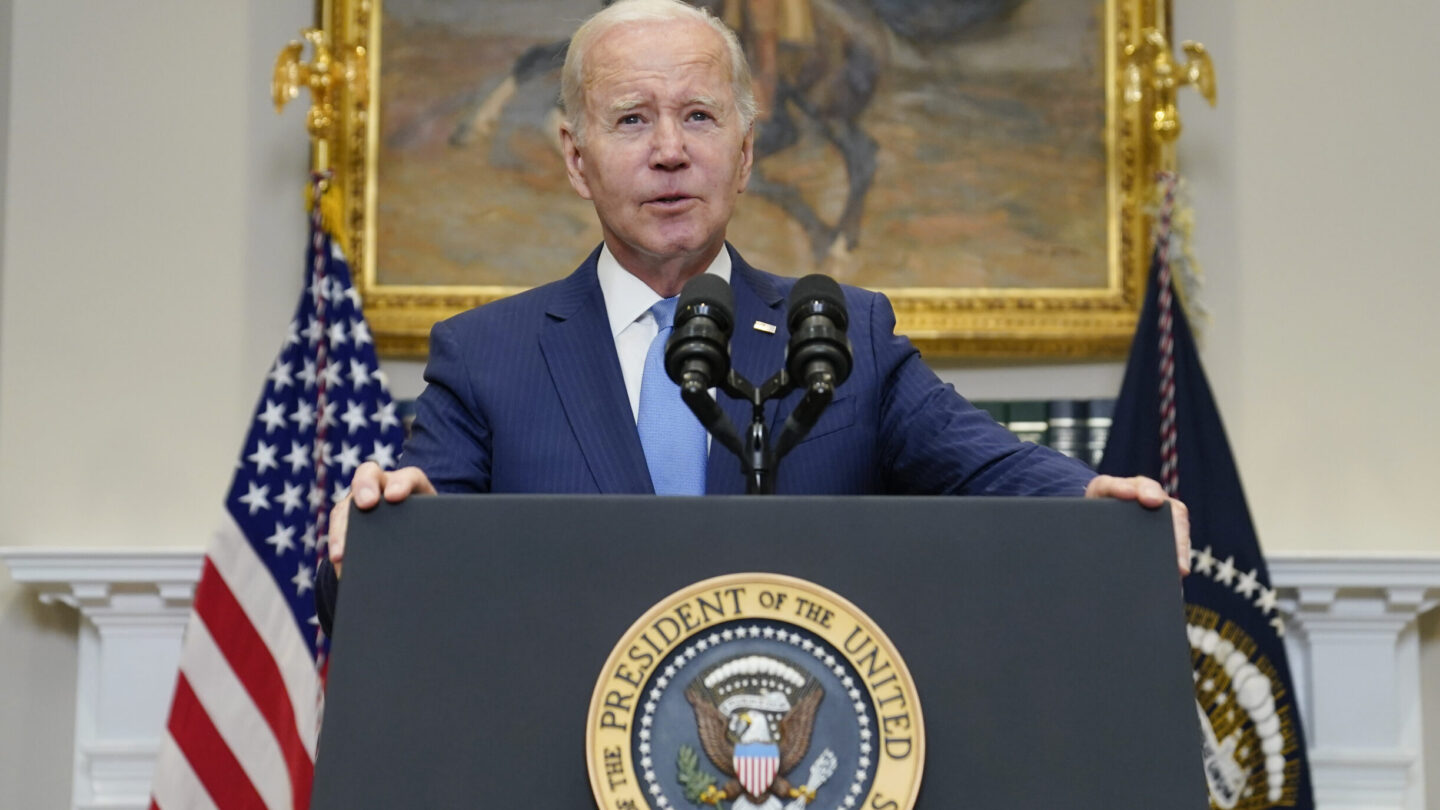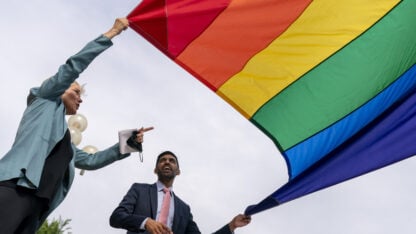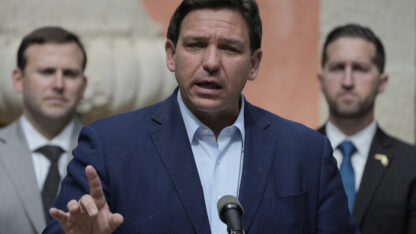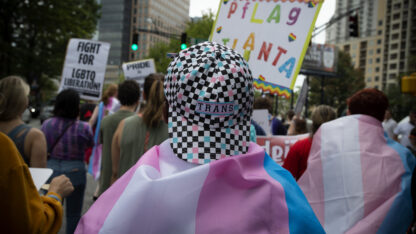President Joe Biden has invited thousands of LGBTQ+ individuals to celebrate Pride Month on Thursday in a high-profile show of support at a time when the community feels under attack like never before and the White House has little recourse to beat back a flood of state-level legislation against them.
Biden announced new initiatives to protect LGBTQ+ communities from attacks, help youths with mental health resources and homelessness and counter book bans, though the impacts may be limited.
Karine Jean-Pierre, the first openly gay White House press secretary, said Biden, Vice President Kamala Harris and their spouses are strong supporters of the LGBTQ+ community and think that having a celebration is an important way to “lift up” their accomplishments and contributions.
She said LGBTQ+ people need to know that Biden “has their back” and “will continue to fight for them. And that’s the message that we want to make sure that gets out there.”
The White House was closely monitoring air quality due to hazardous smoke from Canadian wildfires to determine whether to proceed with plans for a Thursday night picnic featuring food, games, face painting and photos. Queen HD the DJ was handling the music; singer Betty Who was on tap to perform. The nation’s capital was under a “code purple” air quality alert, the fifth-highest level on the six-level U.S. air quality index, with authorities recommending that all people limit their exposure to smoke, and District of Columbia schools canceled all outdoor activities for a second day Thursday.
The Human Rights Campaign, the nation’s largest advocacy organization for lesbian, gay, bisexual, transgender or queer individuals, earlier this week declared a state of emergency for LGBTQ+ individuals in the United States and released a guidebook outlining laws it deems discriminatory in each state.
Just a few days into June’s Pride Month, the campaign said it acted in response to an “unprecedented and dangerous” spike in discriminatory laws sweeping statehouses this year, with more than 525 anti-LGBTQ+ bills introduced and more than 70 signed into law so far — more than double last year’s number.
Kelley Robinson, the campaign’s president, called for a “swift and powerful” response by people in power, including in government, business and education.
“This is a full-out crisis for our communities that demands a concerted response,” she said in an interview with The Associated Press. “I think this is kind of a national call to action and a call to arms to stand up and fight back.”
Biden, a Democrat, announced that the Department of Homeland Security, working with the Justice and Health and Human Services departments, will partner with LGBTQ+ community organizations to provide safety resources and training to help thwart violent attacks.
Separately, HHS and the Department of Housing and Urban Development will provide resources to help LGBTQ+ young people with mental health needs, support in foster care and homelessness.
To confront a spike in book bans, the Department of Education’s civil rights office will appoint a new coordinator to work with schools to address that threat. The White House said banning books erodes democracy, deprives students of material needed for learning and can contribute to the stigma and isolation that LGBTQ+ youth feel because books about them are often the ones that are prohibited.
Hundreds of bills have been proposed restricting the rights of transgender people, including limiting their access to certain forms of health care, and LGBTQ+ advocates say they’ve seen a record number of such measures in statehouses.
The White House points to Biden’s support for lesbian, gay, bisexual, transgender and queer individuals, including appointing them to prominent positions in the White House, such as Jean-Pierre, and across the federal government.
After the Supreme Court last year overturned a woman’s constitutional right to an abortion, Biden signed legislation to protect marriage equality. He continues to urge Congress to send him the Equality Act, which would add civil rights protections for LGBTQ+ individuals to federal law.
Polls show public support for the rights of people who are gay and lesbian has expanded dramatically over the last two decades, with about 7 in 10 U.S. adults in polling by Gallup saying that marriages between same-sex adults should be legally valid and that gay and lesbian relationships are morally acceptable.
But attitudes toward transgender people are complex: In polls conducted in 2022 by KFF and the Washington Post and by the Pew Research Center, majorities said they support laws prohibiting discrimination against transgender people in areas such as housing, jobs and schools.
At the same time, both polls found that a majority of Americans think that whether someone is a man or a woman is determined by sex assigned at birth, and many also support restrictive policies aimed at people who are transgender, for example preventing transgender women and girls from participating in sports teams matching their gender identity, along with restrictions on access to medical treatment like puberty blockers and hormone treatment for transgender teens and children.
The Log Cabin Republicans, which represents LGBTQ+ conservatives, criticized the Human Rights Campaign’s declaration of a “state of emergency” as a “PR stunt so ignorantly detached” from the community’s progress over the past decade.
Charles Moran, the group’s president, noted the gay marriage legislation Biden signed, increased public support for equal rights for LGBTQ+ Americans and their higher visibility across society and accused the campaign of “destructively redefining” support for these individuals around trans surgeries for minors, biological men competing in women’s sports, and sex and gender identity lessons in kindergarten.
“While these issues can be emotional and complex, they in no way pose an unprecedented ‘state of emergency’ to the LGBT community, which has persevered through far worse,” Moran said.









